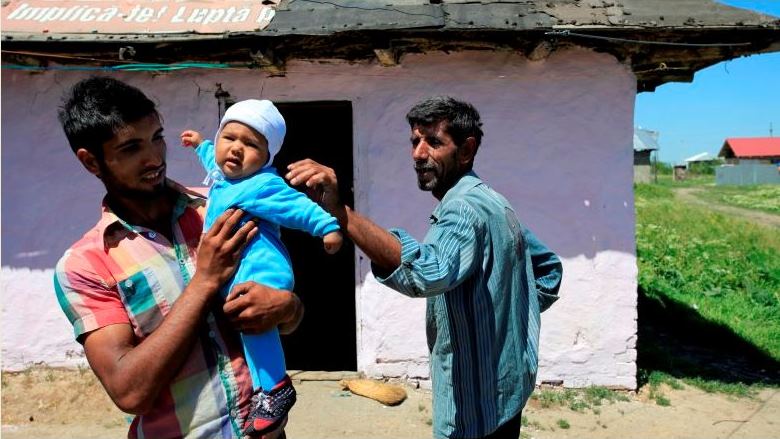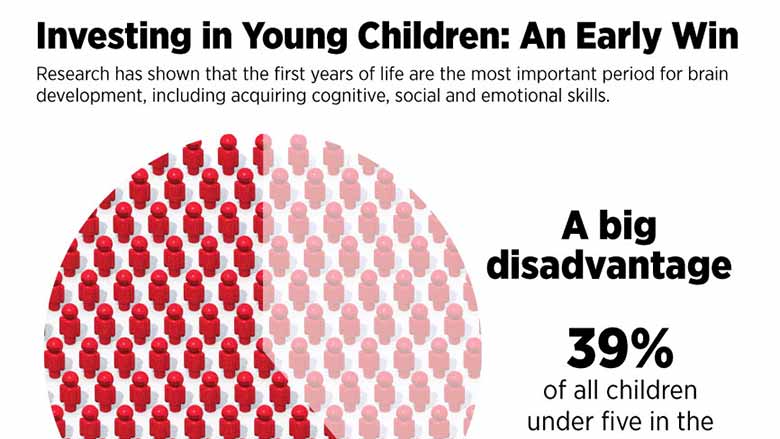The picture paints a brief moment of joy: a proud father holding his young son for the camera while his father smiles and reaches to pat the baby. The child – swaddled in a fuzzy, blue ‘onesie’ and white cap – looks confusedly at the camera, trying to comprehend the world around him.
Three generations of Roma captured in a happy instant.
What this picture cannot show, of course, are the moments to come. Although still just an infant, this child is already facing an unbroken cycle of poverty and exclusion that starts at birth for most Roma and continues throughout their whole life.
By the time this child is three - old enough to begin preschool – his chances of attaining an education have already begun to dwindle. Access to education, especially early education, remains a challenge for marginalized Roma children.
Early childhood development (ECD) lays a foundation to help children develop skills necessary to succeed in all walks of life – in school, at work, at home, and beyond. Children who benefit from early childhood development programs learn better when they enter primary school and ultimately earn higher wages as adults, yet many Roma children below the age of five are deprived of these learning opportunities.
Although nearly 75% of all children in the Europe and Central Asia region are enrolled in pre-primary education, fewer than half of all Roma children aged 3–6 attend preschool. In Serbia, for example, only 6% of all Roma children between the ages 3-5 living in informal settlements are enrolled in early childhood education programs.
A Roma child is also much more likely to grow up in poor household, often meaning limited access to running water, electricity, or indoor plumbing.
Early childhood development programs are particularly beneficial to children from disadvantaged backgrounds, making it even more important to include marginalized Roma in ECD programs and initiatives.
Addressing early childhood development gaps by promoting sustained parenting skills and improving the availability or affordability of quality services in the first 1,000 days of life could go a long way in enhancing opportunities for Roma children well into adulthood.
To help address these gaps, the World Bank Group continues to engage with Roma in a number of areas, including policy lessons for inclusion, scaling up best practices, and partnership development. Early interventions that expand quality ECD - both through more and better early education and via parenting and skills programs – can help offset potential inequalities faced by most Roma from birth.
In addition to preschool enrollment, disadvantaged Roma children could benefit from greater cognitive stimulation at home. Growing up in families in severe poverty and with low education, many Roma children are at risk of malnutrition and have limited exposure to effective parenting practices.
These early childhood development gaps result in unequal access to quality primary education.
At the root of these unequal outcomes lies a fundamentally unfair playing field, starting at birth and continuing throughout the lives of most Roma individuals. If a child starts life with limited access to early education or to decent housing and sanitation, it becomes more difficult for that child to grow healthy, become a successful student, and find a good job.
By introducing a series of complementary development initiatives that begin with early childhood education, the World Bank Group and its partners are working to break this self-perpetuating cycle of unequal opportunities, ethnic discrimination and stifled aspirations – helping to ensure that as this child grows he will continue to have reasons to smile for the camera.


